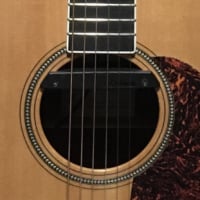Welcome! Here are the website rules, as well as some tips for using this forum.
Need to contact us? Visit https://heatinghelp.com/contact-us/.
Click here to Find a Contractor in your area.
If our community has helped you, please consider making a contribution to support this website. Thanks!
Calculating VR1816 Constant Pressure Mode Setting
Options

D107
Member Posts: 1,945
Currently using VT2218 on speed 3 with 8 ft head (3 zone valves heating). With all three zones calling, Basement zone gets about 2gpm, Main Zone 3gpm, 2Fl zone 2gpm, = 7gpm in all, but system usually shows 10gpm. Ideally we’d like one more gpm on 2Fl zone = 3gpm. I would move to speed 4 to get that but circuit setters get very noisy past a certain throttling point since they weren’t installed with required piping straightaway. So we’ve been advised to swap out 2218 with VR1816 in constant pressure mode which hopefully will reduce need for any throttling and may be more efficient overall.
So if I switch circ out to VR1816 Constant Pressure mode, to get that 10gpm system flow (and total 8gpm+ flow for all three zones) it looks like 8 head setting is closest. As far as i understand ∆P pumping, when just one 2gpm zone calls, pump will ramp down from 10gpm to maybe 2-3 to cover that zone. I totally can’t tell that from reading the pump curve, but that’s the explanation i’ve heard.
I just want to make sure I’m in the ballpark and won’t find out after the switch that the Constant Speed VT2218 covered it better.

So if I switch circ out to VR1816 Constant Pressure mode, to get that 10gpm system flow (and total 8gpm+ flow for all three zones) it looks like 8 head setting is closest. As far as i understand ∆P pumping, when just one 2gpm zone calls, pump will ramp down from 10gpm to maybe 2-3 to cover that zone. I totally can’t tell that from reading the pump curve, but that’s the explanation i’ve heard.
I just want to make sure I’m in the ballpark and won’t find out after the switch that the Constant Speed VT2218 covered it better.

0
Comments
-
Is the 2nd flow zone wide open right now? I'm assuming you want more flow because it's not keeping up heat wise, or has an excessive temperature delta?
How did you measure 8ft of head? 8ft of head on the VT Spd 3 equates to about 8gpm.
You mentioned before you had multiple check valves. I would remove the redundant ones since they reduce pump performance.
Are your circuit setters always noisy, or only when you have one or two zones calling?
As far as a setting goes, you can experiment with the constant and proportional pressure settings. Proportional pressure changes the pressure target based on the flow which can be useful sometimes.
Your noise should be reduced with the delta p pump since it will throttle back when one 1 or 2 zones is calling, instead of just riding the curve of the VT on a constant speed setting.
The VR1816 pump offers a little more peak capacity than speed 3 on the VT2218 (it's curve is a little "fatter" even though the end points are similar.). I would recommend starting with the middle constant pressure setting. Assess performance. If it's fine with a single zone calling, but short when they're all calling, try out the proportional pressure settings. If it's short on a single zone call, then try the high constant pressure setting.
Unless your pump is already on the lowest setting, you should have at least one balancing valve wide open or you're wasting pump energy.
To generalize the VR1816 normally should be plenty of pump for a sub 40k BTU heat load system like yours.
1 -
@SuperJ Thanks. Answers below:
Is the 2nd flow zone wide open right now? I'm assuming you want more flow because it's not keeping up heat wise, or has an excessive temperature delta?
Yes Zone 2 is always open. The original reason for the change was that a) many on the wall recommended this kind of circ for this setup. b) at 2gpm Zone 2, the longest zone felt slow-pumped--sometimes the zone would shut off early on a call for heat and then within twenty minutes start again and last radiator never seems lukewarm. NOTE: main floor and zone 2 cast iron rads are in series pping. c) circuit setter noise when I tried to throttle zones 3 and 1 enough to get more than 2gpm to Zone 2. I should add that the house really overall heats fine. And I should mention that Zone 2 is set two degrees lower than main zone.
How did you measure 8ft of head? 8ft of head on the VT Spd 3 equates to about 8gpm.
First I measured circuit length 120ft. which roughs out to 7.2ft head, and probably less if I do exact measuring of all fittings. But I then reverse-calced using the VT2218 speed 3 with all three zones calling system gpm was reading 10gpm, while sum of all zone gpms (two throttled) was 7-8gpm. So I really should have said 10ft head since that hits 10gpm on the nose on speed 4 but speed 4 was too noisy. Hydraulics is no easy field for this HO.
You mentioned before you had multiple check valves. I would remove the redundant ones since they reduce pump performance.
Heating system circ and DHW circ have IFC plus a separate one on the heating and DHW returns which was needed to stop migration into heating zones on a dhw call. At this late date not likely to start re-piping what hopefully can be done with other adjustments.
Are your circuit setters always noisy, or only when you have one or two zones calling?
Not sure, but I've now throttled the two zones with both the ball valve and circuit setters and very minor noise, but as I mentioned the real horrible noise comes when I try to throttle the other two zones more than I already have. I believe that arises from the circuit setters being installed right after a 90EL.
Obviously I don't need to get every zone flow exact; if I hadn't seen Zone 2 satisfy too early then restart soon afterwards a few times I might not have bothered but everyone on the Wall including yourself has been quite clear about the benefits of this ∆P circ in this setup and it makes sense to me.
With my old undersized boiler, Main zone (not the longest but with biggest load) had a 007; while zones 1 and 3 ran on UPS 15-58 lowest speed.0 -
What type of noise from the circuit setter? Assuming they are flowing the proper direction?
Screeching is usually from excessive velocity, as you choke them down the fluid speeds up in that restriction. They should only be used to make small corrections, I don't like to see a ball valve style choked way down.
Turbulent noise from being too close to a fitting or pump discharge sounds a bit different, like sloshing water.
The additional checks should not be a problem, I doubt at those flow rates they are costing you but less than 1' head.
Delta P circulators are designed specifically for your type of system, that switch should work best for flow adjustment and energy savings.Bob "hot rod" Rohr
trainer for Caleffi NA
Living the hydronic dream1 -
@hot_rod I'd call the noise a kind of roar, clearly reacting to increased throttling and goes away when throttling is lowered. I've never had more than 4gpm going in these pipes.
Using the ball valve is a recent action, seeing if using that would be less noisy than additional circuit setter throttling, which was never that much--maybe like the 1 oclock position from the 12 oclock position.
Attaching two photos; while flow is definitely in the right direction, the black part of the mechanism does seem upside down, but it definitely works in terms of setting throttling and reading gpm. Face being upside down must just be due where it's placed in the system––in downward flow.

0 -
The Quicksetter can mount in any position, no problem there.
What is the flow rate when it is noisy, one zone open, all manual valves wide open? 6- 6.5 gpm on the high side for 3/4 M copper.
I think you have too much pump, the delta P cir should sort all this out.
If it is only making noise with one zone open it sounds like velocity issues.
A graph showing what happens with a fixed speed circ in a zone valve system. You would like that system curve line to stay fairly flat as valves close, not run up curve like this.
A PAB pressure activated bypass valve also can solve that, but the ∆P circ is a better option.Bob "hot rod" Rohr
trainer for Caleffi NA
Living the hydronic dream1 -
@hot_rod I don't believe the noise is dependent on amount of zones open or even flow, it's when any zone is throttled past a certain point the noise seems to occur. Never happens when setter is wide open. When I've experimented and gotten flow up past 6gpm temporarily that whooshing sound is clearly too much velocity, but that waterfall roar can happen in any zone even at 2-3gpm if throttled too much--and that's even though it's not throttled a lot. First time I heard it after the install, I heard the roar from the floor above from main zone which was only partially throttled. Just feels to me like it's from that quick 90El.
Anyway, even with VT2218 fixed speed 3 it's mostly under control now except I need a little more flow on Zone 2. I expect circs to be switched soon, so the VR1816 will probably solve any issues.0 -
Ideally the flow setter is for fine adjustments 1/2 - 1 gpm range.
You really don't want to try and choke down a 10- 12 gpm flow to 3 or 4 gpm, for example, that ball is closed way down and not a very friendly flow path when you try and throttle large steps.
And yes some straight pipe upstream is advisable with any control valve, balance, check, etc..
It sounds like you are on a path to success.Bob "hot rod" Rohr
trainer for Caleffi NA
Living the hydronic dream1 -
Yes, thanks. Never throttled past 1gpm.0
-
Categories
- All Categories
- 87.5K THE MAIN WALL
- 3.3K A-C, Heat Pumps & Refrigeration
- 61 Biomass
- 430 Carbon Monoxide Awareness
- 122 Chimneys & Flues
- 2.1K Domestic Hot Water
- 5.9K Gas Heating
- 117 Geothermal
- 170 Indoor-Air Quality
- 3.8K Oil Heating
- 78 Pipe Deterioration
- 1K Plumbing
- 6.6K Radiant Heating
- 395 Solar
- 15.9K Strictly Steam
- 3.5K Thermostats and Controls
- 57 Water Quality
- 51 Industry Classes
- 51 Job Opportunities
- 18 Recall Announcements

